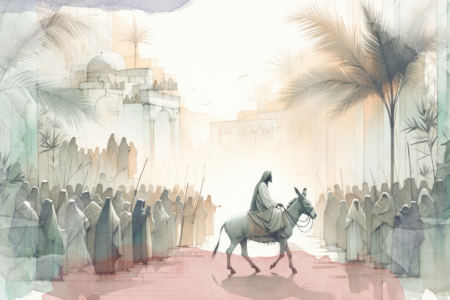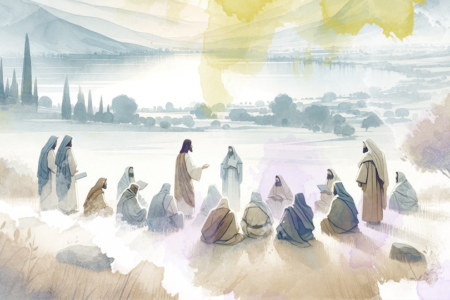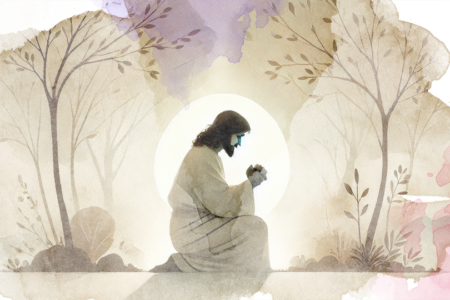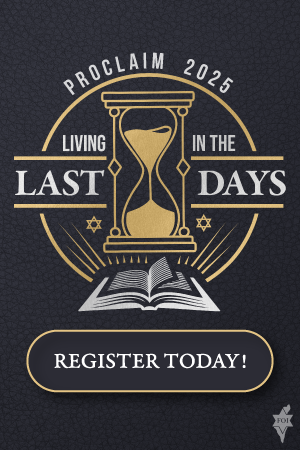What About Egypt in Prophecy?
The whole world has been aware of the historic series of Begin/Sadat meetings that have been occurring since November, 1977 when President Sadat made his historic visit to Jerusalem. The “Framework for Peace” prepared at Camp David is possibly a step toward cessation of hostilities between Israel and Egypt, at least for the present.
The Bible has much to say about the future of Israel. Many Christians are aware that Israel’s restoration to the Land and regeneration as a “people of the Lord” are prophesied in many Scripture passages. How many are aware, however, that Egypt is the subject of some rather astounding biblical prophecies?
There are over 700 references to Egypt in the Old Testament – 250 of which are prophecies concerning that nation. The nineteenth chapter of Isaiah contains the most important prophetic utterance concerning Egypt in all of the Old Testament. The twenty-five verses of that chapter present two main themes: (1) Destruction for Egypt (19:1-15), and (2) Deliverance for Egypt (19:16-25).
Verses 1-15 describe a threefold disaster that will befall Egypt. There will be political disaster, consisting of a civil war that will cause the Egyptians to resort to occult activity (19:2-4). There will be an economic disaster that will consist of the drying up of the Nile (19:5-10). Verses 5 and 6 predict a day when that mighty “river will be parched and dry”, and its “canals will emit a stench.” Such an event has never taken place in the history of Egypt. The Nile has been the economic backbone of Egypt since ancient days. The annual cresting of the Nile has been of utmost importance to the natural irrigation of Egypt’s farmlands. So sensitive was this cresting that if the flood stage were down two feet, a total of only 28 feet high (instead of the normal 30), Egypt’s crops would be down 20 percent. With the construction of the Aswan Dam, however, the remote possibility of the event described by Isaiah has been brought more into the realm of reality. The dam that was supposed to launch Egypt into the technological era has brought many problems due to the interruption of the annual rise and fall of the river. Among other problems the dam has allowed the salt waters to back over the delta and ruin the profitable exporting of fish and has also permitted the salt content in the soil to build up due to the lack of yearly flood. Finally, intellectual disaster will fall upon the wise men of Egypt (19:11-15). Verse 11 says that the advice of Egypt’s wisest advisers will be “stupid”. Those who were noted even in Solomon’s day for their wisdom (1 Ki. 4:30) will be of no help to Egypt in this day of disaster.
The most astounding prophecies about Egypt are found in 19:16-25. The phrase “in that day” occurs six times in these verses and refers to the final period of prophetic events in world history (cf. Amos 9:11; Joel 3:1; Zech. 14:9). Verses 16 and 17 speak of a time when “Judah will be a terror to Egypt.” The little land of Israel presented no threat to mighty Egypt for over 24 centuries. As a matter of fact, Egypt used her land as a marching ground for her wars with Assyria and others. However, four wars with Israel since 1948 have resulted in a healthy respect for the Israelis by the Egyptians. Whatever may be Sadat’s ulterior motives for seeking peace with Israel, he obviously now recognizes that her military power is something to be reckoned with.
Also “in that day” a revival will take place in Egypt (19:18-20). The Egyptians in five cities will be speaking the “language of Canaan”. The reference to the “language of Canaan” must refer to the Hebrew language, which was spoken in Israel in Isaiah’s day. However, a few centuries after Isaiah Hebrew ceased to be the spoken language of the people of Israel, and succeeding generations of its inhabitants spoke languages like Aramaic, Greek and Arabic. However, the twentieth century has witnessed the revival of the Hebrew language in Israel. In other words, the stage is being set for the fulfillment of Isaiah’s prophecy! Furthermore, many Egyptians “in that day” will be swearing allegiance to “Jehovah Sabaoth” – the Lord of Hosts (v. 19). This is quite a statement in light of the fact that well over 90 percent of Egypt professes the religion of Islam. Obviously the fulfillment of this prophecy awaits “that day”.
Now if that is not enough to astound you, try this on for size. Verses 23-25 predict a day when there will be open communication and travel between the countries of Egypt, Israel and Assyria (modern Iraq and Syria). “In that day there will be a highway from Egypt to Assyria . . . and the Egyptians will worship with the Assyrians.” That highway has to pass through Israel. Any traveler in the Middle East knows that such communication is far from the case today. On a recent trip to the Middle East this writer learned this truth firsthand when he and his party had to secure new passports at the American Consulate in Jerusalem because the Israeli officials had stamped our old ones at the airport and the Jordanian officials would not allow us into their country with an Israeli stamp on our passports.
Isaiah’s final prophecy in verse 24 is this: “In that day Israel will be the third party with Egypt and Assyria, a blessing in the midst of the earth.” The inhabitants of all three nations will be worshipping together! The nations will be “thirds” in a trinity of worship. This is truly astounding knowing the present situation! It is obvious that lsaiah’s repeated phrase, “in that day”, refers to a time future to our day. Nothing like these prophesied events has ever taken place. That “day” will be the period of time following the glorious return of our Lord Jesus Christ. Zechariah describes it as the time after Jesus sets His feet on the Mount of Olives and becomes “the King over all the earth” (Zech. 14:1-9). “In that day” all nations will be worshipping the “Lord of Hosts” and coming to Jerusalem to keep “the Feast of Tabernacles” (14:16) – a reference to the Millennial reign of Christ. It is interesting that Egypt is mentioned there as one of those nations (14:18) – an obvious parallel to Isaiah’s statement.
The extent to which the Camp David “accords” and any subsequent Peace Treaty fit into this picture simply cannot be measured at this time. The day will declare it, and only God will be able to announce finally on whether that which we see happening before our eyes is possibly the first stages of “that which was spoken by the prophet”.







